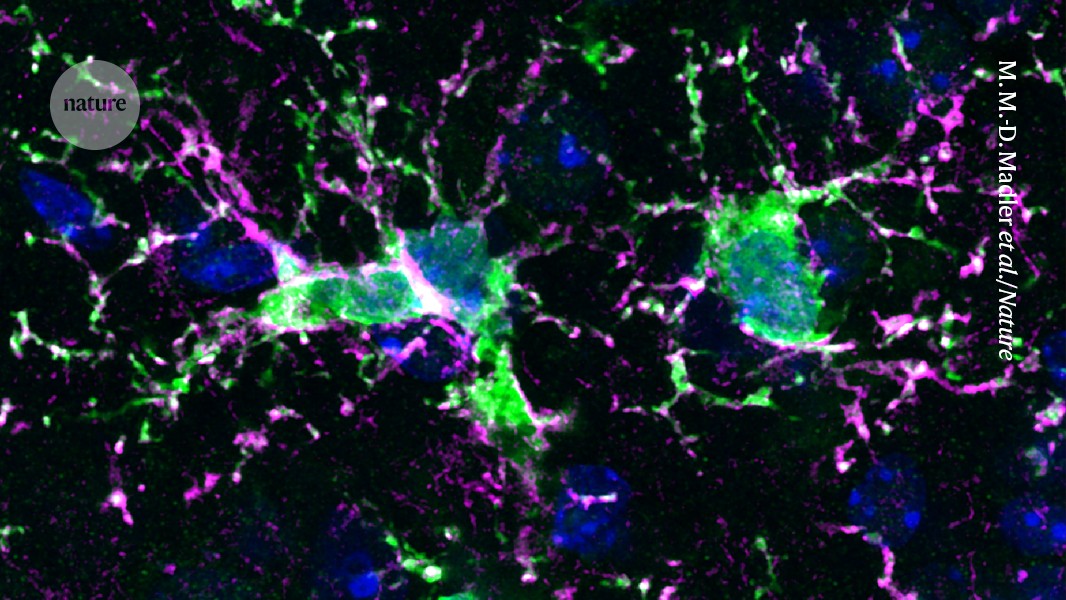
"A fresh supply of the immune cells that keep the brain tidy might one day help to treat a host of conditions, from ultra-rare genetic disorders to more familiar scourges, such as Alzheimer's disease. In the past few months, a spate of new studies have highlighted the potential of a technique called microglia replacement and explored ways to make it safer and more effective. "This approach is very promising," says Pasqualina Colella, who studies gene and cell therapy at Stanford University School of Medicine in California. "But the caveat is the toxicity of the procedure.""
"Microglia are immune cells that patrol the brain, gobbling up foreign invaders, damaged cells and harmful substances. They can help to protect neurons - cells that transmit and receive messages to and from other tissues - during seizures and strokes, and they prune unneeded connections between neurons during normal brain development. "Microglia do a lot of important things," says Chris Bennett, a psychiatrist who studies microglia at the Children's Hospital of Philadelphia in Pennsylvania. "So, it's not surprising that they are involved in the pathogenesis of many diseases.""
"Those diseases include a suite of rare disorders caused by genetic mutations that directly affect microglia. Malfunctioning microglia have also been implicated in more familiar conditions with complex causes, such as Alzheimer's disease and Parkinson's disease, as well as ageing, says Bo Peng, a neuroscientist at Fudan University in Shanghai, China. This has led researchers to investigate a tantalizing possibility: that replacing disease-causing microglia could treat some brain conditions."
Microglia are brain immune cells that clear pathogens, damaged cells and harmful substances, protect neurons during seizures and strokes, and prune synapses during development. Malfunctioning microglia contribute to rare genetic disorders and to common neurodegenerative diseases such as Alzheimer's and Parkinson's, and to ageing. Microglia replacement aims to swap disease-causing microglia for healthy ones to treat these conditions. Recent research has highlighted the technique's therapeutic potential and efforts to improve safety and effectiveness. The main limitations are procedure toxicity and unique challenges distinct from standard bone-marrow immune-cell replacement approaches.
Read at Nature
Unable to calculate read time
Collection
[
|
...
]